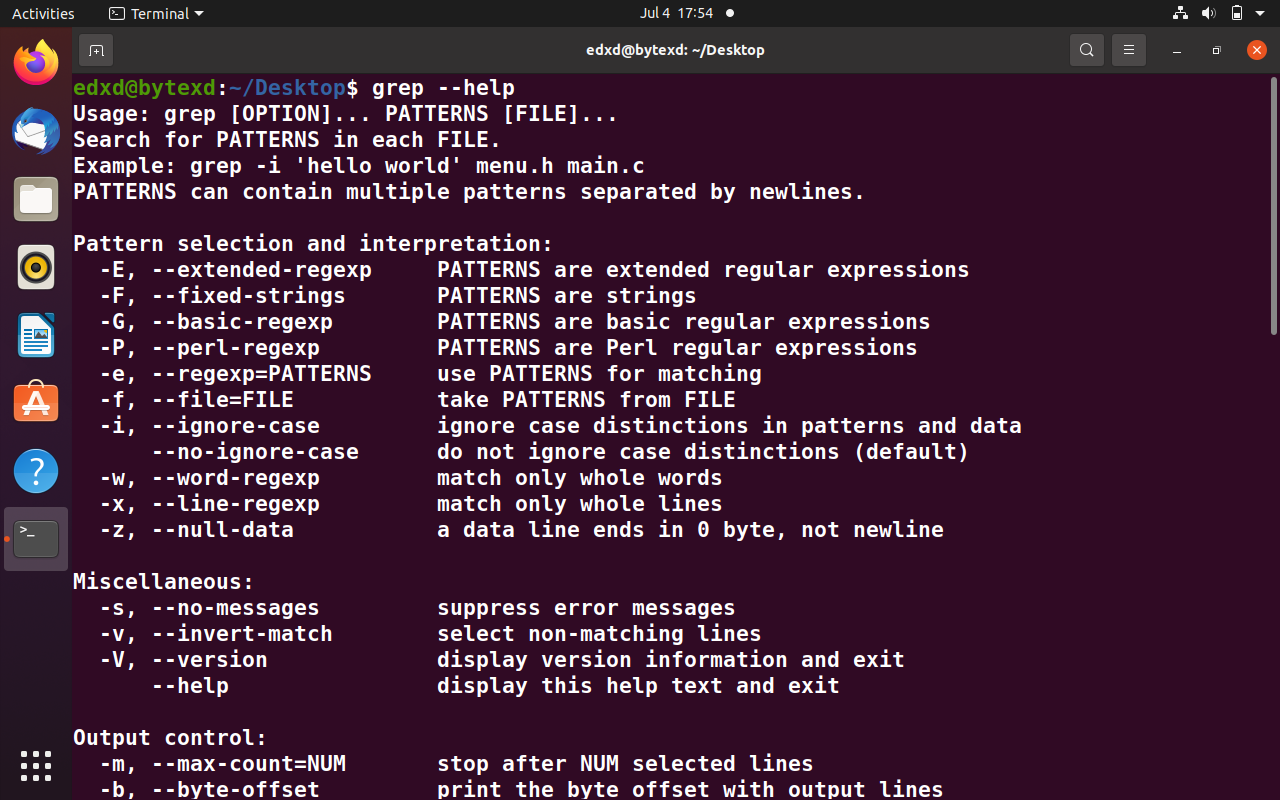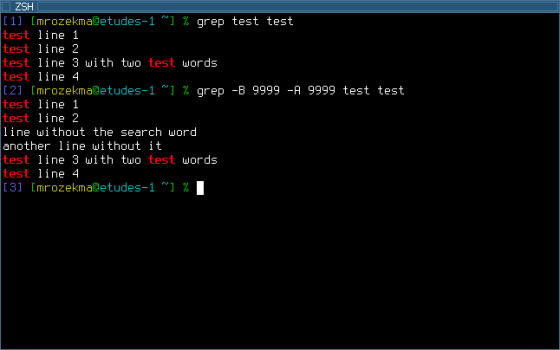

o (-only-matching) - print only the matched patternīy default, grep prints the line where the matched pattern is found. With the option -w, grep ensures that the matches are exactly the same pattern as specified. This means that grep yo grep.txt will print the same results as grep yo grep.txt because 'yo' can be found in you. `-w` (-word-regexp) - print matches of the whole wordīy default, grep matches strings which contain the specified pattern. # all files in the current directory that matches l (-files-with-matches) - print file names that match a pattern # command 1 i (-ignore-case) - used for case insensitivity # command 1ĥ. Let's look at nine of them while applying them to the example above.ĪDVERTISEMENT 4. You is expected to have a different color than the other text to easily identify what was searched for.īut grep comes with more options which help us achieve more during a search operation. The grep command is primarily used to search a text or file for lines that contain a match to the specified words/strings. The result for this is: Hello, how are you The following grep command will search for all occurences of the word 'you': grep you grep.txt If there is no match, no output will be printed to the terminal.įor example, say we have the following files (called grep.txt): Hello, how are you The result of this is the occurences of the pattern (by the line it is found) in the file(s). You can also use the wildcard (*) to select all files in a directory. Note that single or double quotes are required around the text if it is more than one word. Without passing any option, grep can be used to search for a pattern in a file or group of files.
#Grep command linux how to#
In this article, we'll look at how to use grep with the options available as well as basic regular expressions to search files. Grep comes with a lot of options which allow us to perform various search-related actions on files.
/grep-56b1ea713df78cdfa00329f4.png)
It is a command line tool used in UNIX and Linux systems to search a specified pattern in a file or group of files. We can search and match the whole word which is separated with spaces by using the -w option.Grep stands for Globally Search For Regular Expression and Print out. $ grep ismail /home/ismail/Downloads Search Whole Wordīy default the grep command searches and matches specified terms in some part of the line or word.
#Grep command linux full#
$ grep ismail *Īlternatively, we can specify another directory providing its absolute or full path like below. In the following example, we search the term “ismail” in all files in the current working directory. The bash glob operator can be used to specify all files at the specified directory. $ grep ale MyFile.csv YourFile.csv AllFiles.csv Search All Files In Specified DirectoryĪnother useful feature of the grep command is searching all files in the specified directory. The files we want to search can be specified after their search term by separating their spaces. Grep command provides useful options where searching for multiple files is one of them. $ grep ale /home/ismail/MyFile.csv Grep Multiple Files We can also specify the file we want to search as an absolute or full path like below. In the following example, we search “ ale” in the text file “ MyFile.csv“. s, -no-messages suppress error messagesĪ specified text can be searched in the specified file. z, -null-data a data line ends in 0 byte, not newline no-ignore-case do not ignore case distinctions (default) i, -ignore-case ignore case distinctions in patterns and data e, -regexp=PATTERNS use PATTERNS for matching P, -perl-regexp PATTERNS are Perl regular expressions grep stands for global regular expression match and its common command available in most of Unix platform including Linux and Solaris. G, -basic-regexp PATTERNS are basic regular expressions E, -extended-regexp PATTERNS are extended regular expressions PATTERNS can contain multiple patterns separated by newlines. Įxample: grep -i 'hello world' menu.h main.c The pattern that is searched in the file is referred to as the regular expression (grep stands for global search for regular expression and print out). The grep command provides a lot of options and help information about these options can be displayed with the -help option like below. The grep filter searches a file for a particular pattern of characters, and displays all lines that contain that pattern.

TERMS is single or multiple terms which are searched in the specified FILE or redirected input.The grep command has the following syntax. PATTERNS can be simple text, number, string, or regex (regular expressions).

From an academic point of view, the grep command searches for PATTERNS in each FILE. The grep command is the very popular command used to filter string, text, and data in files and command outputs.


 0 kommentar(er)
0 kommentar(er)
